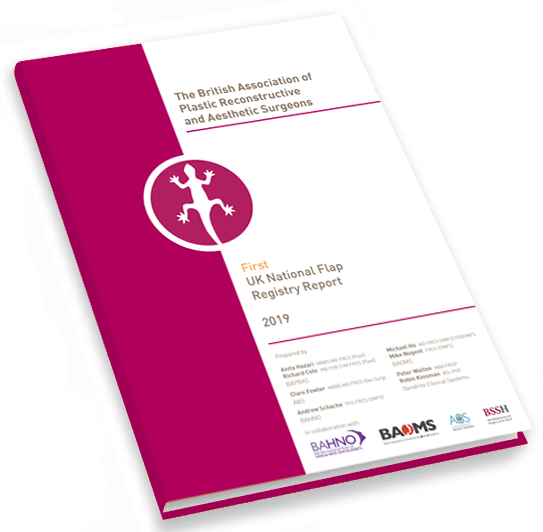 The British Association of Plastic, Reconstructive and Aesthetic Surgeons (BAPRAS), in conjunction with Dendrite Clinical Systems, is delighted to announce the release of the First UK National Flap Registry (UKNFR) Report. The UKNFR, which was launched in August 2015, collects information on all major free and pedicled flap operations carried out in the UK. This cross-specialty registry is supported by the British Association of Head and Neck Oncologists (BAHNO), the British Association of Oral Maxillofacial Surgeons (BAOMS) and the Association of Breast Surgery (ABS) and the British Society for Surgery of the Hand (BSSH).
The British Association of Plastic, Reconstructive and Aesthetic Surgeons (BAPRAS), in conjunction with Dendrite Clinical Systems, is delighted to announce the release of the First UK National Flap Registry (UKNFR) Report. The UKNFR, which was launched in August 2015, collects information on all major free and pedicled flap operations carried out in the UK. This cross-specialty registry is supported by the British Association of Head and Neck Oncologists (BAHNO), the British Association of Oral Maxillofacial Surgeons (BAOMS) and the Association of Breast Surgery (ABS) and the British Society for Surgery of the Hand (BSSH).
“The motivation for individuals across the collaborating specialties has come with a shared belief in the need to verify and improve clinical standards and a desire to breakdown historic specialty barriers. Thank you to surgical colleagues from BAPRAS, BAOMS, BAHNO and ABS who have helped with this report, interpreting the graphs, tables and charts in a manner that is clinically relevant and avoids inherent problems of over interpretation of data,” Miss Anita Hazari, Consultant Plastic Surgeon, UKNFR Audit Lead, writes in the Introduction of the report on behalf of the UKNFR Team. “The UKNFR is the first national registry of its type in the world to collect data on all major pedicled and free flap operations. Data entry is voluntary, and it is acknowledged that unit data in this first report may not be a true representation of the case load of each participating unit. However, this report is the first step in a process that will span years.”
The report includes 5,751 operation records from over 180 registered consultants from 97 private and NHS hospitals in England, Wales, Northern Ireland and Republic of Ireland (surgeons in Scotland are awaiting permission to join this project from the Public Benefit and Privacy Panel (PBPP) for Health and Social Care).
Key findings of the report include:
- The majority of operations were for cancer, mostly with the reconstruction being performed at the time of the tumour excision; the other large group involved traumatic injuries, mostly to the limbs.
- Of the 5,021 records compromising the group for the main analysis, 50.1 % were breast operations, 32.2% head & neck, the rest were limbs, trunk and perineum operations.
- Overall total flap survival: breast 97.6%, head & neck 94.2%, limbs 94.5%, trunk and perineum 94.2%.
- Re-operations to the recipient site were recorded as specific data-items, including partial or total removal of the flap, graft or second flap and are useful particularly when the impact of partial flap loss is considered.
- Duration of surgery: significantly more head and neck operations took >9 hours compared to the other flap procedures.
- More couplers were used in breast reconstruction, constituting 81% of end-to-end vein anastomoses, whereas in head and neck surgery couplers were used in 58% of end-to-end vein anastomoses with over 97% patency rates; and
- The majority of breast reconstructions were delayed (49.0%) i.e., after completion of cancer treatment, compared to immediate (45.2%) i.e., mastectomy and reconstruction performed at the same time.
The UKNFR not only assesses the quality of care patients receive but is used by specialists as part of a professional practice process for appraisal and revalidation.
“The UK National Flap Registry offers all surgeons undertaking flap reconstruction the opportunity to engage in reflective practice and to contribute to ever improving outcomes simply by contributing to the project and entering data appropriately. The greater the engagement the more robust the data will become and the more our patients will benefit,” Mr Mark Henley, BAPRAS President, writes in the Forward in the report. “The findings are encouraging in reflecting best practice and satisfactory outcomes, but the data also indicates areas of practice such as in the consideration of co-morbidities where continued collaborative working has the potential to significantly improve outcomes. I commend this report to you as the first stage in a new era of reconstructive surgical practice and look forward to future developments.”
It is hoped the next iteration of the registry will include defined categories of partial flap survival, and therefore a clearer reporting of the process of flap reconstruction rather than its current binary representation. This specifically relates to head and neck flap surgery, and lower limb reconstructions. In addition, the registry will also include information on whether or not Enhanced Recovery After Surgery (ERAS) was applied to flap reconstruction patients.
“We are proud to be part of publishing the world’s first national registry report on pedicled and free flap operations,” commented Dr Peter Walton, Managing Director of Dendrite Clinical Systems. “I would like to thank all the surgeons who have contributed their data, which has resulted in this ground-breaking report. We look forward to publishing further reports to help healthcare professionals assess and improve the quality of care they provide for patients.”
To access the report, please click here
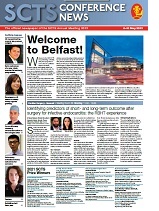 Dendrite Clinical Systems and the Society for Cardiothoracic Surgery in the UK are pleased to announce the SCTS Conference News 2022 newspaper is now available to view/download. The newspaper reports a multitude of presentations from the meeting including the latest and the best information on new technologies and techniques in cardio-thoracic surgery.
Dendrite Clinical Systems and the Society for Cardiothoracic Surgery in the UK are pleased to announce the SCTS Conference News 2022 newspaper is now available to view/download. The newspaper reports a multitude of presentations from the meeting including the latest and the best information on new technologies and techniques in cardio-thoracic surgery. Researchers led by the Clinical Research Unit at the Special Unit for Biomedical Research and Education (SUBRE), Aristotle University of Thessaloniki School of Medicine, Greece, have initiated a randomised control trial (RCT) that will compare minimally invasive extracorporeal circulation (MiECC) with conventional cardiopulmonary bypass (cCPB).
Researchers led by the Clinical Research Unit at the Special Unit for Biomedical Research and Education (SUBRE), Aristotle University of Thessaloniki School of Medicine, Greece, have initiated a randomised control trial (RCT) that will compare minimally invasive extracorporeal circulation (MiECC) with conventional cardiopulmonary bypass (cCPB).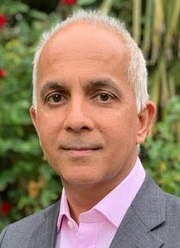 Dendrite Clinical Systems, working in close cooperation with the SCTS and several cardiac centres, has developed a series of ‘Dashboards’ that allow users to access to their unit’s surgical outcomes and compare them to national results in real-time. By uploading their data to the central Dendrite National Cardiac Surgical Registry, individual units or centres can instantly benchmark their results via an on-line database for internal consumption to assist units with their own clinical governance and for auditing purposes.
Dendrite Clinical Systems, working in close cooperation with the SCTS and several cardiac centres, has developed a series of ‘Dashboards’ that allow users to access to their unit’s surgical outcomes and compare them to national results in real-time. By uploading their data to the central Dendrite National Cardiac Surgical Registry, individual units or centres can instantly benchmark their results via an on-line database for internal consumption to assist units with their own clinical governance and for auditing purposes.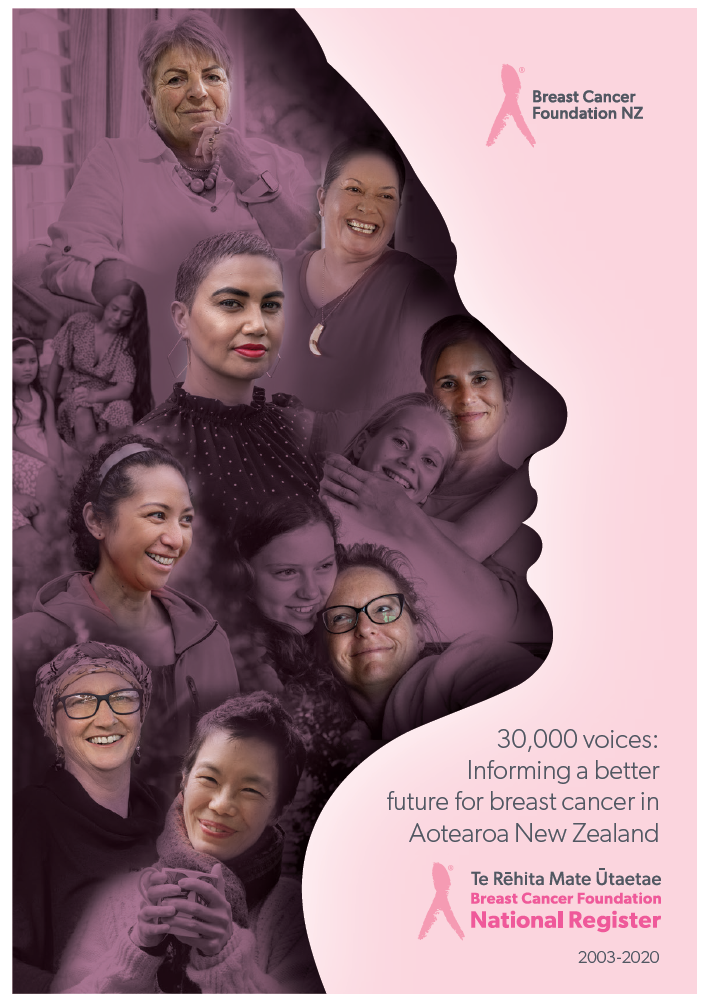 Dendrite Clinical Systems is delighted to announce the first ever report from New Zealand’s Te Rēhita Mate Ūtaetae - Breast Cancer Foundation National Register. The ground-breaking report, titled, “30,000 voices: Informing a better future for breast cancer in New Zealand,” covers 30,000 patients diagnosed from 2003 to 2019.
Dendrite Clinical Systems is delighted to announce the first ever report from New Zealand’s Te Rēhita Mate Ūtaetae - Breast Cancer Foundation National Register. The ground-breaking report, titled, “30,000 voices: Informing a better future for breast cancer in New Zealand,” covers 30,000 patients diagnosed from 2003 to 2019.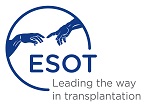 The European Society for Organ Transplantation (ESOT) has signed an agreement to develop a series of web-based registries on organ
The European Society for Organ Transplantation (ESOT) has signed an agreement to develop a series of web-based registries on organ 


